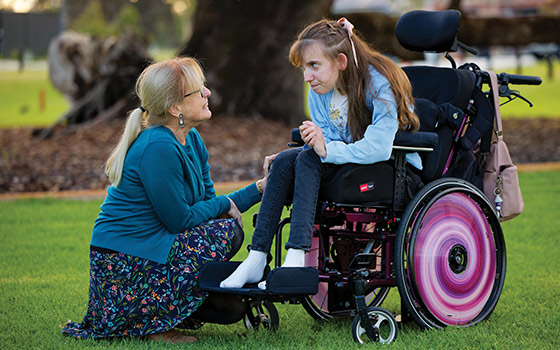Search
Children with intellectual disabilities are more likely to experience sleep disorders of insomnia, excessive daytime sleepiness and sleep breathing disorders than typically developing children. The present study examined risk factors for these sleep disorders in 447 children (aged 5-18 years), diagnosed with an intellectual disability and comorbid autism spectrum disorder, cerebral palsy, Down syndrome or Rett syndrome. Primary caregivers reported on their child's sleep using the Sleep Disturbance Scale for Children (SDSC), as well as medical comorbidities and functional abilities.
We describe the birth prevalence and characteristics of congenital heart defects in a geographically defined Australian population. This descriptive, population-based study examined congenital heart defects in live births, stillbirths and pregnancy terminations ascertained by the Western Australian Register of Developmental Anomalies, 1990-2016.
To investigate the association between energy drink (ED) use and sleep-related disturbances in a population-based sample of young adults from the Raine Study.
Rett syndrome (RTT) is a genetically caused neurodevelopmental disorder associated with severe disability. We assessed the feasibility of a telehealth program supporting gross motor skills in RTT. Five girls with RTT were assessed and a home-based exercise program developed in response to functional goals. Families then participated in monthly Skype sessions for 6 months, guided by a physiotherapist to monitor progress and adjust the program as necessary.
The objective of the study is to determine the association between nonsyndromic oral clefts (OC) in children and ABO, Rh blood groups, lip, and dermatoglyphic patterns of their unaffected parents.
Behavioural support for young people with Prader-Willi syndrome (PWS) is necessary in home and school environments. The Trauma Informed Practice (TIP) framework has been used to support young people with complex behavioural needs in school settings. To identify parent and professional perspectives on behavioural challenges experienced by young people with PWS and strategies for supports, to inform understanding of how they are aligned with the TIP framework.

The Quality of Life Inventory - Disability

AuStralian Collaboration to Enhance Neuro-Development

The Sibling Project focuses on the wellbeing, relationships and needs of children, adolescents and emerging adults who have a sibling with a developmental disability.

Developmental and epileptic encephalopathy (DEE) conditions are rare, and most have a genetic cause.
